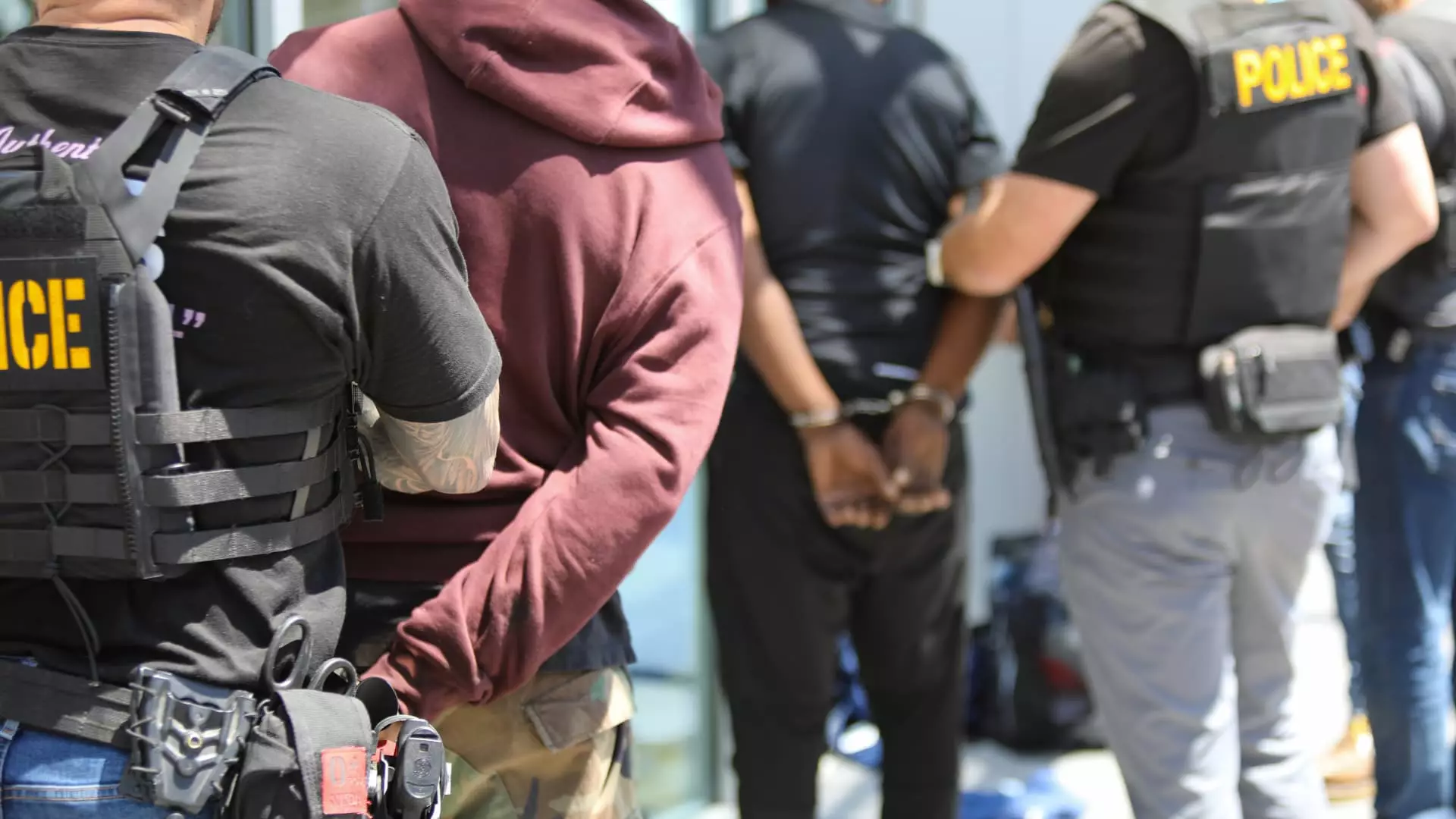In a striking display of collective effort, America’s retailers and law enforcement agencies have united to combat a growing epidemic: organized retail crime. This alarming phenomenon has dramatically escalated in recent years, with reports showing an extraordinary 93% increase in shoplifting incidents since 2019. These numbers do not merely reflect isolated incidents; they illustrate a grim trend that threatens the very fabric of our shopping experiences. If we reflect on the implications of this crisis, we find ourselves staring into the abyss of societal decay fueled by systemic issues in legislation, enforcement, and economic disparity.
The Coordinated Response
The recent nationwide crackdown, dubbed a pioneering initiative led by the Cook County regional organized crime task force, saw over 100 jurisdictions come together across 28 states to target this pervasive threat. This unprecedented collaboration between retailers like Walgreens, Home Depot, and Kroger and law enforcement marks a critical turning point. It is a clarion call informing potential offenders that society will no longer stand by idly while criminal enterprises thrive on impunity. Cook County Sheriff Tom Dart’s statement, “When you give specific focus to a crime, it reverberates,” resonates deeply. It encapsulates a sentiment long overdue in discussions about crime; targeted action creates repercussions that deter future offenses.
Yet, one cannot overlook the hypocrisy ingrained within our socioeconomic structures. Penalizing theft without addressing the drivers of poverty and inequality merely shifts the problem around—criminalizing the symptoms instead of solving the underlying disease. What happens when poverty-stricken individuals—desperate for survival—are labeled as thieves, stripped of their dignity, and thrust into a vicious cycle of crime and punishment?
Changing the Legal Landscape
The legal reforms initiated by Cook County State’s Attorney Eileen O’Neill Burke signal a pivotal shift in tackling organized retail crime. By lowering the threshold for felony retail theft charges to cover amounts as little as $300, the initiative aims to dismantle the networks that underpin organized theft. The focus is on prosecution, deterrence, and intelligence-sharing—critical components in a comprehensive strategy to combat this issue. However, while the reforms reflect necessary urgency, they also raise unsettling questions about fairness and justice. Are we inadvertently creating a system that disproportionately punishes the most vulnerable?
By enabling more aggressive prosecution of retail theft, we run the risk of inundating an already overburdened judicial system with cases that stem from a lack of access to resources, education, and social support. This poses an ethical dilemma: how do we balance the protection of businesses while ensuring that those caught in the grips of desperation are treated justly?
The Role of Collaboration
Central to the success of this coordinated operation is the emphasis on collaboration. Industry leaders like Ulta Beauty and Walgreens have publicly expressed their commitment to working alongside law enforcement. Their engagement in the National ORC Blitz showcases a collective understanding that crime cannot be eradicated in silos; it requires a holistic approach. Yet, this collaboration extends beyond simple partnerships. It demands an introspection into how corporate practices contribute to this cycle of crime—whether it be inadequate wages, lack of opportunity, or even unjust policing practices.
Is it enough to merely stamp out organized retail crime through punitive measures if the causes remain unaddressed? Retailers must rethink their roles within communities, recognizing that their corporate social responsibility extends well beyond profits. As long as socioeconomic disparities persist, the problem of crime will linger like a shadow, with the potential to undermine their efforts to protect their assets.
Looking Ahead
As communities reflect on this newfound urgency to tackle organized retail crime, we must also challenge ourselves to consider the broader implications of such an initiative. From instigating serious legal reforms to promoting economic opportunity, America stands at a crossroads. Today’s crackdown is a promising first step, yet we need to remember that true progress demands we rethink the very foundations of our societal approach to crime. If we wish to build a just and equitable society, we must advocate for solutions that not only punish but also empower. The battle against retail crime is not just one for the stores; it’s ultimately a fight for the heart of our communities.

